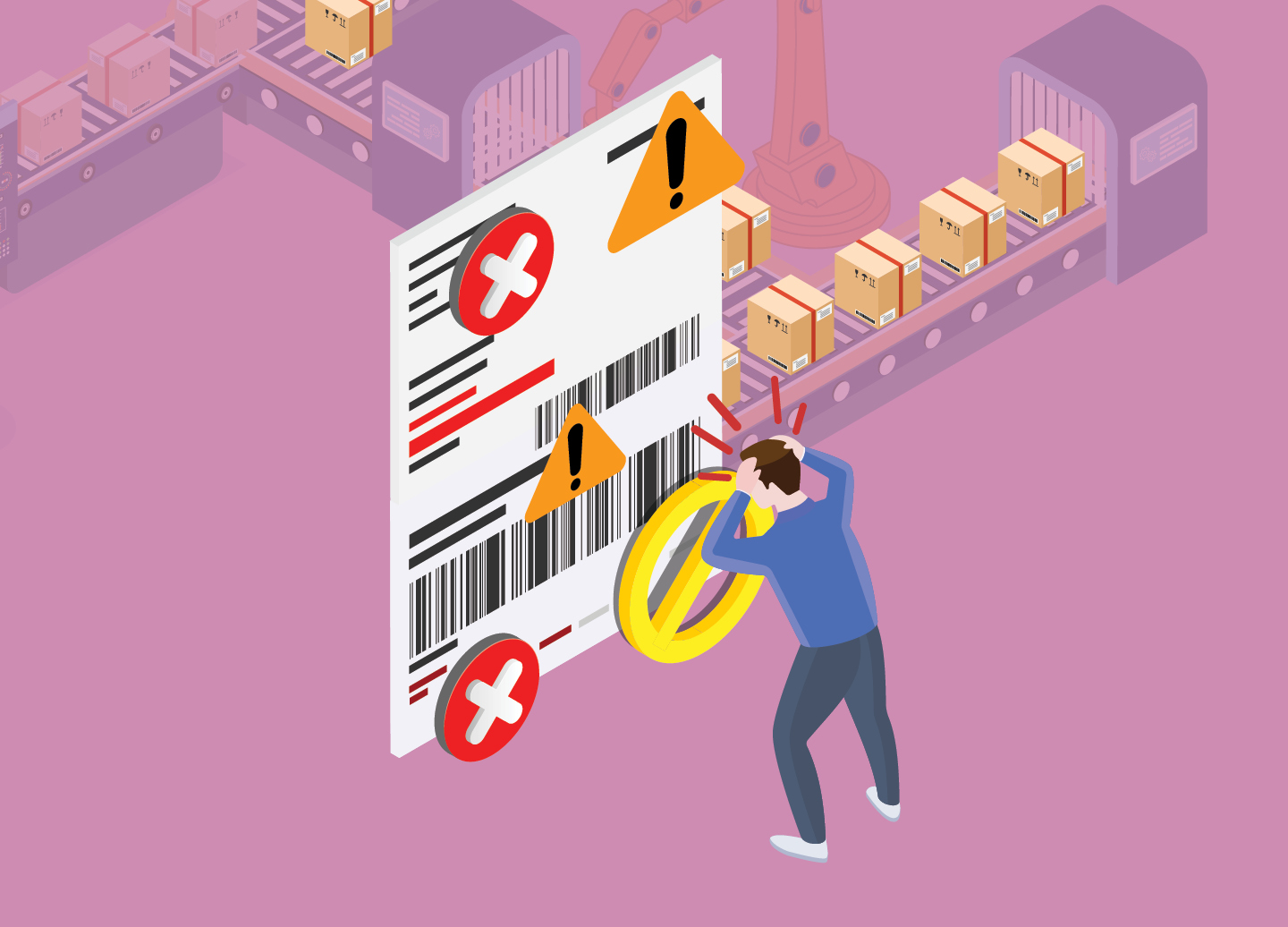Common Shipping Labeling Errors and How Multi-Carrier Shipping Software Can Help Avoid Them

Dive into common label errors and the supply chain tech that help prevent them.
In the world of shipping, accurate shipping labels play a crucial role in ensuring a seamless and timely delivery – which is well-documented to have a direct link to overall customer satisfaction. What may not be as well known, though, is that even seemingly minor labeling errors can have significant consequences. These can lead to delayed shipments, lost packages, and unhappy customers. Let’s take a closer look at the importance of accurate shipping labels and how multi-carrier shipping software can provide solutions to avoid labeling errors.
Why do accurate shipping labels matter?
As mentioned above, shipping labels serve as essential communication tools in the supply chain, conveying critical information about a package's origin, destination, and handling instructions. For both carriers and shippers alike, accurate shipping labels ensure seamless package sorting, routing, and tracking, reducing the risk of lost or misrouted shipments. Correct shipping labels enable carriers to quickly identify and process packages, making sure that they reach the right destinations on time. Smooth package handling minimizes the likelihood of delays, enhancing the overall customer experience (CX) during delivery.
Especially in international shipping, compliant shipping labels are essential for customs clearance and adherence to each country's import/export regulations. International shipping presents unique challenges compared to domestic shipping, with various regulations and requirements. Compliant shipping labels provide crucial information such as the package's contents, value, country of origin, and harmonized system (HS) codes that categorize goods for customs purposes.
Delays in customs clearance can lead to missed delivery deadlines, increased holding costs, and potential dissatisfaction among customers waiting for their packages. If packages are held at customs due to labeling errors or missing information, storage fees or demurrage charges may apply. Further exercising this problem, incorrect or non-compliant shipping labels can result in packages being returned by customs authorities. This situation not only incurs return shipping fees and additional handling costs for businesses, but also leads to customer dissatisfaction and a potential loss of future sales.
What are the common label errors that shippers might see?
Some of the most common labeling errors fall into one of the following buckets:
- Typos and data entry mistakes: These errors may include misspelled addresses, incorrect postal codes, or inaccurate data and recipient information. This can happen because of human error in the manual data entry process or inadequate quality control measures.
- Incomplete or missing information: Labels that lack vital information, such as the recipient's contact number or the full shipping address, can lead to delivery delays. Carriers often rely on this information for smooth deliveries and to address any issues during delivery.
- Incorrect barcode placement and readability issues: These errors rely more on the proper set-up of your system initially. Improper barcode placement or printing can lead to difficulties in scanning and tracking. Unreadable or damaged barcodes will not be able to be processed by automated package sorting and can lead to lost or misrouted shipments.
- Non-compliance with carrier-specific label requirements: Each carrier has their own specific label requirements, including size, format, and placement guidelines. Failure to follow these requirements may result in package rejections or processing delays at carrier facilities.
- Address formatting errors: Incorrect address formatting can confuse carriers, which can lead to (are you sensing a theme?) misrouted packages or failed delivery attempts. Elements of the address, such as street names, apartment numbers, city, state, and zip codes, must be accurate for a successful delivery. On the other hand, if a return address is incorrect, it can also lead to a lost package.
How can multi-carrier shipping software help avoid labeling errors?
Multi-carrier shipping software (MCSS) is a powerful and robust solution that can both streamline and optimize the shipping process to address labeling errors effectively. With a seamless integration to the order management system (OMS) and e-commerce platform, the shipping software can provide a centralized platform to not only manage shipments, but automate the label generation process, reducing the likelihood of typos and data entry mistakes.
One advantage of utilizing multi-carrier shipping software is its automation capabilities. Instead of manually entering shipping details for each order, the shipping software can extract relevant information from the OMS, eliminating the risk of typos and common data entry errors. This automation not only saves time, but also ensures accuracy and consistency across orders. These kinds of automations improve efficiency, by reducing the reliance on manually entering data which in turn leads to improved order fulfillment and hopefully faster shipping times.
Advanced data validation and street address verification features added to the MCSS further enhance accuracy by flagging potential errors before labels are generated. The address verification feature is particularly important for international shipments, as it helps businesses comply with different postal regulations and prevents issues from incorrect address formatting. When potential address errors are caught further upstream in the shipping process, brands can reduce the number of costly returns from misrouted packages or shipments that can’t be delivered. [Learn more about Address Validation]
Multi-carrier shipping software provides brands with access to multiple carrier options within a single carrier-agnostic platform. This streamlined approach allows for efficient carrier selection based on factors such as shipping cost and transit time. With rate shopping capabilities available within the MCSS, shippers can easily compare shipping rates offered at different carrier and service levels to select the best option, related to cost, time or both, for each shipment.
In addition, multi-carrier shipping software ensures that labels will always meet carrier-specific requirements and maintain complete compliance. The shipping software handles labels, so shippers don't need to research or learn how to make formatting changes to meet carrier requirements.
Why should I be using ProShip multi-carrier shipping software to ensure shipping label accuracy?
In the fast-paced world of shipping, accurate labeling is one of the keys to successful deliveries and satisfied customers. ProShip’s priority on label compliance and accuracy sets it apart as a leader in the multi-carrier shipping solution space, with a team of experts who have extensive knowledge of label recommendations and requirements. ProShip’s team of supply chain and IT experts are committed to your business and dedicated to producing a positive customer experience so shippers can build long term trust with customers, reduce return rates, and establish a reputation for reliable and efficient shipping services. Reach out to connect with one of our shipping experts today!
Explore more ProShip shipping label content
Want to learn more about labels and optimizing your processes? Check out some of our most popular shipping label content below or in our resource stream.

